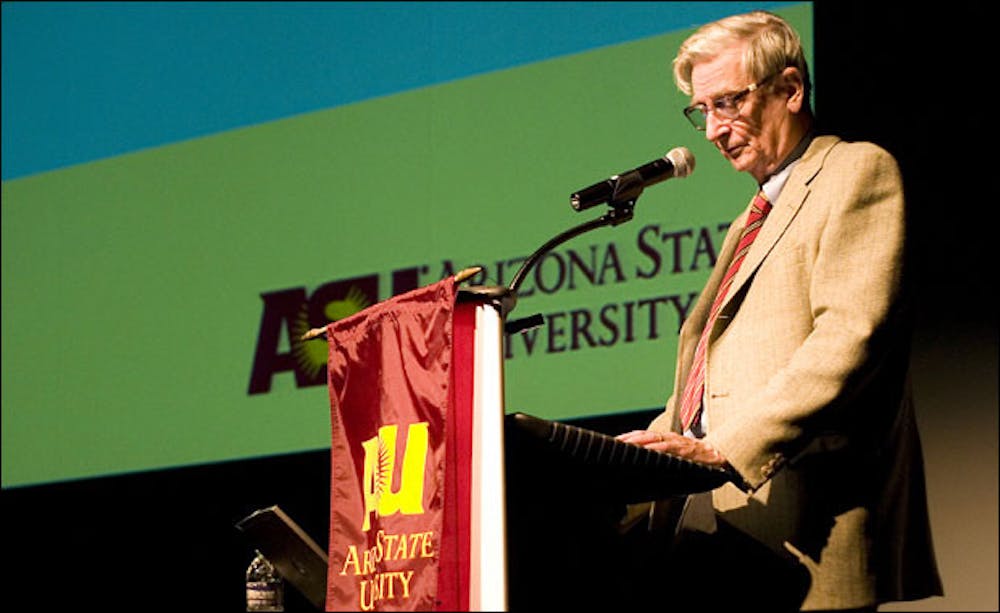Modern scientists will combine research methods in their work, said Edward Wilson Tuesday night as the first speaker in the Darwin Distinguished Lecture Series.
Wilson, a professor emeritus at Harvard University, has written 25 books, including two Pulitzer Prize winners. Wilson is also the winner of more than 100 medals and awards internationally.
In his lecture, “Darwin and the Future of Biology,” Wilson talked about Charles Darwin’s contributions to science and their role in modern science.
Wilson recommended listeners read all of Darwin’s books and said that they were still valid today.
“He set us on the right course to think about [biological science],” Wilson said.
Darwin scandalized Victorian society when he suggested men descended from apes, Wilson said.
Chandra Goff, a biology in society senior, said Darwin’s struggle to be recognized is relevant to modern science.
“I think that’s significant because there are things that we think are scandalous now that won’t be in the future,” she said.
Wilson also talked about how evolution by natural selection has been challenged by proponents of intelligent design.
Science is also changing to be more interdisciplinary, Wilson said.
He said there are two types of scientists: problem solvers and naturalists.
“The emphasis in research is shifting from one or two levels of organization to all of the transitioning levels,” he said.
More and more, the two different strategies for research are merging and working together in modern science, Wilson said.
Jessica Corman, a first-year biology docotoral candidate, said Wilson’s lecture was relevant to the work she and other scientists are doing.
“His ideology about this grand unifying [in biological sciences] is interesting because it’s something that a lot of biologists are struggling with right now,” she said.
Wilson also talked to the audience of about 450 people about Encyclopedia of Life online at eol.org, a Web site dedicated to providing information on known plant and animal species.
“[The Web site] will provide complete information as it’s accumulated in real time,” Wilson said.
The Web site continues the naturalist tradition of observation as the basis of science, a method crucial to Darwin’s work.
The lecture series is part of ASU’s celebration of Darwinfest, which will continue throughout the year and is also being marked at other universities.
Margaret Coulombe, research proposal and media relations coordinator for the School of Life Sciences, said ASU is holding the festival in celebration of both the 150th anniversary of Darwin’s “On the Origin of Species,” as well as Darwin’s 200th birthday.
“His ideas caused a proliferation of a number of other scientific ideas,” Coulombe said. “Darwinfest is a way of participating in what’s a worldwide celebration.”
Reach the reporter at deborah.bevers@asu.edu.




